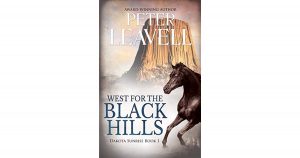by Peter Leavell, @PeterLeavell

Dudes complaining about women’s fiction—’Inspirational Romance is sooooo formulaic’ *as he watches Fast and Furious 8, 9, and 10.
All writing is formulaic.
Tolkien cheated. Lord of the Rings is a formulaic epic.
Shakespeare wrote his plays based on Seneca, a Roman playwright, sometimes using the same plots.
The two are pretty good writers, Tolkien and Shakespeare, who offer a great illustration of how to create a plot for fiction. Imitate or innovate.
Imitate
No two people decorate their house the same way, from colors to furniture arrangements, the decor looks a bit different in every home. And yet, they’re still boxy structures that have bedrooms, a living room, a kitchen, and maybe even a bathroom or two if the person is lucky.
There are even city or state laws demanding we build formulaic houses.
Fiction is similar. Tolkien wrote about evil and an epic quest where the hero must sacrifice all for the good of an unknown future. Hero versus incredible odds is a compelling formula. Tolkien did little innovation, yet decorated his fiction with elegant and sophisticated furnishings that readers of ancient and modern times would understand.

Imitation, or formulaic writing, is taking advantage of patterns in popular literature and formulating your ideas to fit the confines of what the audience finds comfortable. In other words, you can sell a bunch of books from formulaic stories people love.
Innovate
The Bible doesn’t have exact floor plans for building a church. So, Constantine, a Roman Emperor around the year 300 AD, decided that pagan temples were great spaces to worship. The idea is sound because the space is brilliant. Yet, church leaders added more. With a bit of innovation, they stretched the nave, added two transepts, and finally an apse that, from above, made the entire structure look like a cross.
Shakespeare did the same with his work. He took Roman plays and modernized them for a 1500’s audience. Yet, he innovated with something new, he added elements of the human condition. It was risky, but the wordsmith knew what he was doing. He escaped formulaic to try a new idea.
Yet, was it entirely new?
He based his idea on a premise people knew, the Roman plays, and added another element people knew- their own condition. He smashed the two together and boom…he earned the title of The Bard.
Innovation isn’t writing something entirely new. Innovation is smashing together two ideas that no one has before, or putting together elements that are normally not thought comparable. In other words, why not put Amish Vampires in Space, like Kerry Nietz successfully tried?
As the Bible states, there is nothing new under the sun, so all writing is formulaic. Learn from the masters, and you’ll find yourself writing better plotlines, and on the side, enjoying literature of the highest caliber.
Philip Anderson keeps his past close to the vest. Haunted by the murder of his parents as they traveled West in their covered wagon, his many unanswered questions about that night still torment him.
His only desire is to live quietly on his homestead and raise horses. He meets Anna, a beautiful young woman with secrets of her own. Falling in love was not part of his plan. Can Philip tell her how he feels before it’s too late?
With Anna a pawn in the corrupt schemes brewing in the nearby Dakota town, Philip is forced to become a reluctant gunslinger. Will Philip’s uncannily trained horses and unsurpassed sharpshooting skills help him free Anna and find out what really happened to his family in the wilderness?

Peter Leavell, a 2007/2020 graduate of Boise State University with a degree in history and a MA in English Literature, was the 2011 winner of Christian Writers Guild’s Operation First Novel contest, and 2013 Christian Retailing’s Best award for First-Time Author, along with multiple other awards. An author, blogger, teacher, ghostwriter, jogger, biker, husband and father, Peter and his family live in Boise, Idaho. Learn more about Peter’s books, research, and family adventures at www.peterleavell.com

